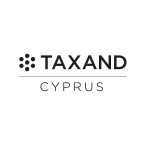A new protocol was signed (protocol), amending the existing tax treaty between Cyprus and Switzerland (the treaty) on July 20 2020.
Changes to the tax treaty
The signed protocol introduces, among others, the minimum standards of the BEPS actions of the OECD, related to bilateral agreements and other amendments that have been bilaterally agreed upon.
Incorporation of the preamble
In compliance with BEPS Action 6, it is incorporated within the treaty a specific wording of the preamble, stating that the treaty “intends to eliminate double taxation with respect to the taxes covered by this Agreement without creating opportunities for non-taxation through tax evasion or avoidance (including through treaty-shopping arrangements aimed at obtaining reliefs provided in this agreement for the indirect benefit of residents of third States)”.
As a result of this inclusion, it is made clear that once the intention of the taxpayer is to be engaged in a treaty shopping arrangement and other treaty abuse strategies, depriving in that way the jurisdictions to impose tax, then these benefits that arise due to the treaty arrangement should be deprived.
Article 7: Business profits
Paragraph 4 of Article 7 has been deleted and replaced with a new paragraph. According to the new paragraph 4, a contracting state shall make no adjustments to the profits that are attributable to a permanent establishment of an enterprise of the other contracting states after six years from the end of the taxable year. The provision does not apply in case of fraudulent behaviour, gross negligence or wilful default.
Therefore, after six years from the end of the taxable year, no re-writing of the accounts is authorised by the treaty even though the transactions between the head office and the PE have not taken place at arm’s-length.
Article 9: Associated enterprises
Article 9 deals with adjustments to profits that may be made for tax purposes where transactions have been entered into between associated enterprises (parent and subsidiary companies and companies under common control) on other than arm’s-length terms.
Paragraph 2 of Article 9 has been deleted and replaced with a new paragraph. The new paragraph 2 of Article 9 clarifies that the other contracting state shall make an appropriate adjustment to the amount of the tax charged therein on those profits. Effectively the new paragraph removed the requirement that in doing so, the contracting state should be justified both in principle and as regards the amount that needs to be adjusted.
A new paragraph 3 is included in Article 9, and it is made clear that a contracting state shall not include in the profits of an enterprise profits after six years from the end of the taxable year in which the profits would have accrued to the enterprise. In paragraph 3 the aforementioned provision shall not apply in case of fraudulent behaviour, gross negligence or wilful default.
Article 26: Mutual agreement procedure
The first sentence of Article 26, dealing with the mutual agreement procedure (MAP), has been deleted and replaced with a new one.
According to the revised paragraph 1 of the MAP procedure, where a person considers that the actions of one or both of the contracting states result or will result for him in taxation, not in accordance with the provisions of the treaty, then he may, irrespective of the remedies provided in the domestic law of those states, present his case to the competent authority of either contracting states. In the previous paragraph, the person could bring such a claim in the country where he has been resident only.
Article 28A: Entitlement to benefits
A new paragraph has been inserted in Article 28A, which deals with the application of the agreement in special cases. More specifically, the treaty implements the principal purpose test (PPT), which is, among others, one of the mechanisms used to attack treaty shopping arrangements in response to the BEPS Action Plan 6.
By the addition of a limitation of benefits clause in Article 28A it is made clear that no benefit would be granted to the taxpayer under this agreement, “if it is reasonable to conclude that obtaining that benefit was one of the principal purposes of any arrangement or transaction that resulted directly or indirectly in that benefit unless the tax payer establishes that granting that benefit was in accordance with the object and purpose of the tax treaty”.
As a result, taxpayers should be in a position to establish that any tax treaty benefit granted is in accordance with the object and purpose of the treaty and not for tax avoidance or evasion or treaty shopping cases.
Entry into force
The publication of the said protocol in the Official Gazette of Cyprus means that Cyprus has ratified the protocol. Provided that both parties ratify the protocol by the end of 2021, the tax treaty amendments should be effective as of January 1 2022.
Key takeaways
The introduction of BEPS minimum standards regarding treaty shopping enhances the tax authorities' position to challenge transactions that do not actually have economic activities. Thus, taxpayers should consider all the elements regarding the economic substance in order to address such tax risks.
A new paragraph under Article 7 has been added to prevent a contracting state for making an adjustment to the PE profits following the six years from the end of the taxable year.
Similarly, Article 9, which deals with the adjustment of profits between associated companies, states that no adjustment of profit is applicable after six years from the allocation of profit.
Consequently, a TP study is recommended to confirm the profits attributable to a permanent establishment and to an associated company in order to avoid any profits being taxed twice.
Demis Ioannou
Partner, Taxand Cyprus
Niki Antoniou
Lawyer, Taxand Cyprus













